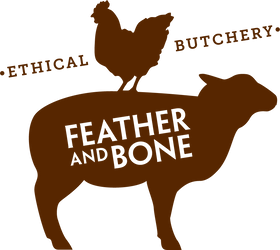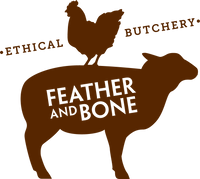2019 is the Year of the Pig, but what does that mean?
2019 is the Year of the Pig. Which got us thinking (again) about how most pork is sold and purchased as a sort of undifferentiated, generic, conveyer-belt product with no reference to the pig or the system in which it was raised.
Which also got us thinking (again) about how the vast majority of Australian pigs are raised in a confined space, require expensive manure management procedures and are fed a medicated diet of unsustainably-grown grains. Compare that to the 3% of pasture-raised pigs that galivant around freely, fertilising paddocks as they go, nesting where they will and eating a diverse range of foods including the excess products from local food producers such as dairies and breweries. Which brought us to the farmers we represent and the important work they do in fostering healthy ecosystems on their farms that benefit soil, plants, animals and people.
So we made a little video love letter to these visionary farmers and their pastured pigs in the hope that by encouraging everyone to support them, more will join their ranks.
2019 is the Year of the Pig. But let's be clear about what kind of pig we really want to eat and what kind of farm we really want to support.
#YearofthePasturedPig
But let's get to the point of all this dewy-eyed, cute pig overload. Supporting pastured food production systems such as these farms means putting your money where your mouth is. How you spend your money determines what gets produced.
In our humble opinion, when the pork is this good, that's not difficult. This week we're offering pork from three different farms, all of which we're confident you'll enjoy - whether you're nibbling on a barbecued chop, tucking into melt-in-your-mouth, slow-cooked roast shoulder or enjoying a home-made pork banh mi.

Extraordinary Pork Duroc/Berkshire pigs
We've blathered on a lot about these wonderful farmers over the last few years. You can read about them in our stories here and here and here. As well as growing excellent pork and working doggedly toward a long-term vision of regenerating their farm outside Dubbo, Michael and Alex Hicks are one of a handful of Australian farmers who've managed to install an on-farm abattoir to streamline and improve their production. It's a really significant achievement that will make an enormous difference to the Hicks and their pigs and provides inspiration for other farmers to take control of the process.

Sally's Flat Berkshire pigs
Andrew and Penny Hundy grow award-winning superfine wool at their farm at Sally's Flat between between Bathurst and Mudgee, not far from Hill End. They also run a small flock of Southdown lambs for their own table and, intermittently since 2010, we've purchased and sold these excellent lambs. Recently, the Hundys started growing Berkshire pigs for the same purpose and found themselves awash with pigs (unlike sheep which produce one or two lambs annually, a sow can produce up to 24 piglets). Enter Feather and Bone. We received our first delivery of 6 month-old porkers last week and used one as a demo for last Saturday's Whole Animal Butchery class. At the end of the class we cooked up some cuts on the bbq - US ribs, fillet, cutlets, scotch fillet (neck) steaks and thin-cut boned belly simply sprinkled with salt - and the pork was excellent. Soft, succulent meat with firm fat and great flavour.

Fresh Pastures - 'for the love of soil'
We've only recently started working with Ian Chapman at Fresh Pastures and he's the only one of these three farmers that we haven't visited. However, his reputation precedes him and we have no qualms about his authenticity, experience and the quality of his pork. The Fresh Pastures herd are predominantly Wessex Saddleback with infusions of Berkshire, Hampshire and Landrace and comprise part of Ian's regeneratively managed mixed farm growing cattle, sheep and pigs at Stuart Town just north of Orange. Here they are tucking into whey from the local dairy.





Leave a comment